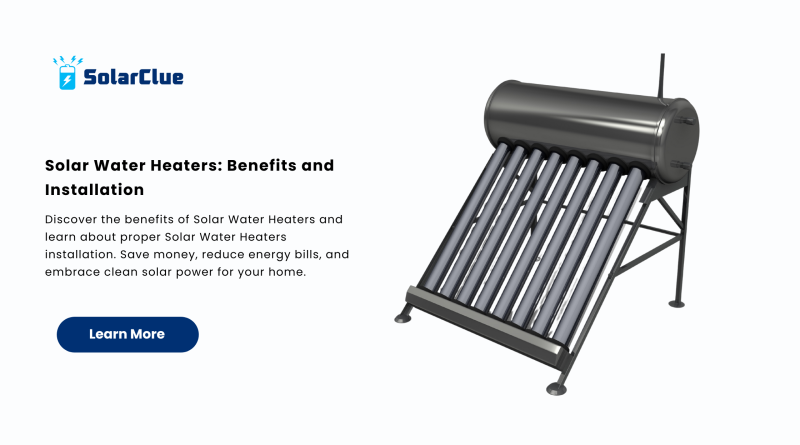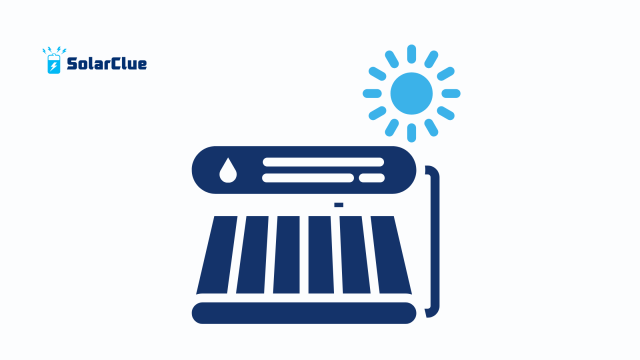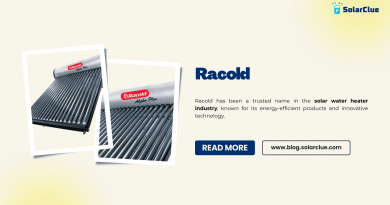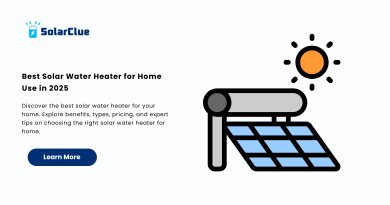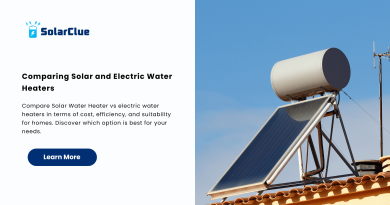Solar Water Heaters: Benefits and Installation
The rising demand for renewable energy solutions has made Solar Water Heaters a popular choice for households and businesses. With the ability to harness solar energy directly from the sun, these systems provide a sustainable and cost-effective way to heat water. Unlike traditional electric or gas heaters, Solar Water Heaters use a clean and renewable resource, making them both eco-friendly and economical.
As energy costs continue to rise, homeowners are actively turning to solar power systems for long-term savings and environmental benefits. In this blog, we will explore the benefits of Solar Water Heaters, explain the process of Solar Water Heaters installation, and highlight why investing in this technology can transform the way you consume energy at home.
Table of Contents
- 1 What are Solar Water Heaters?
- 2 Solar Water Heaters Benefits
- 3
- 4 Types of Solar Water Heaters
- 5 Solar Water Heaters Installation: Step-by-Step Process
- 6 Key Considerations Before Installing Solar Water Heaters
- 7 Cost of Solar Water Heaters in India
- 8 Solar Water Heaters vs. Electric Heaters
- 9 Future of Solar Water Heaters
- 10 FAQs on Solar Water Heaters
- 11 Conclusion
What are Solar Water Heaters?
Solar Water Heaters are devices that use solar energy to heat water for residential or commercial use. These systems typically consist of:
-
Solar collectors: Panels installed on rooftops to absorb sunlight.
-
Storage tanks: Insulated tanks that store hot water.
-
Piping and circulation system: Ensures water moves between collectors and tanks efficiently.
By using a solar power system, these heaters reduce dependence on electricity or fossil fuels, making them a smart and sustainable investment.
Solar Water Heaters Benefits
Choosing Solar Water Heaters offers numerous advantages that extend beyond cost savings. Let’s dive into the top benefits:
1. Reduced Energy Bills
Heating water accounts for a large portion of household electricity consumption. By switching to solar water heaters, you can significantly lower monthly electricity or gas bills.
2. Environmentally Friendly
Using solar energy reduces carbon emissions and minimizes dependence on non-renewable resources. This step supports a cleaner, greener planet.
3. Low Maintenance
Once installed, Solar Water Heaters require minimal maintenance. With periodic checks, they can last up to 15–20 years, making them a long-term investment.
4. Government Incentives
In many regions, governments offer subsidies or tax benefits for adopting renewable solutions like solar power systems. This makes installation more affordable.
5. Energy Independence
By relying on solar power, you protect yourself from fluctuating fuel prices and grid dependency. Your hot water supply becomes more reliable and cost-effective.
Types of Solar Water Heaters
Understanding the different types of Solar Water Heaters is important before installation.
Active Solar Water Heaters
These systems use pumps and controls to circulate water between collectors and storage tanks. They are ideal for colder climates where freezing is a concern.
Passive Solar Water Heaters
Simpler in design, these systems rely on natural circulation of water. They are cost-effective, low-maintenance, and suitable for warmer regions.
Solar Water Heaters Installation: Step-by-Step Process
1. Site Assessment
A professional evaluates your roof’s orientation, tilt, and shading to ensure maximum sunlight exposure for the solar water heater installation.
2. Choosing the Right System
Depending on your location and household needs, you can select between active or passive systems.
3. Installing Solar Collectors
The solar collectors are mounted on rooftops or open areas that receive abundant sunlight throughout the day.
4. Connecting Storage Tanks
Hot water is stored in insulated tanks connected to the collectors. This ensures hot water availability even during cloudy weather.
5. Integration with Existing Plumbing
The system is connected to your existing water pipes, ensuring a seamless flow of heated water into your taps, showers, and appliances.
6. Testing and Commissioning
After installation, the system is tested for efficiency, water flow, and insulation to ensure smooth operation.
Key Considerations Before Installing Solar Water Heaters
-
Roof Space and Strength: Ensure your roof can support solar collectors.
-
Local Climate: Sunny areas maximize the efficiency of solar power systems.
-
Water Usage: Higher consumption may require larger or multiple tanks.
-
Budget: Consider upfront costs versus long-term savings.
Cost of Solar Water Heaters in India
The price of Solar Water Heaters varies depending on capacity, technology, and installation complexity. On average:
-
100-liter capacity: Suitable for small families, costs around ₹15,000–₹25,000.
-
200–300 liter capacity: For medium to large families, costs range from ₹30,000–₹60,000.
-
Industrial systems: Can exceed ₹1 lakh, depending on requirements.
Though the initial cost may seem high, the Solar Water Heaters benefits in terms of energy savings quickly offset the investment.
Solar Water Heaters vs. Electric Heaters
-
Energy Source: Solar heaters use solar energy, while electric heaters depend on grid power.
-
Running Cost: Solar heaters have near-zero running costs compared to high electricity bills from electric heaters.
-
Sustainability: Solar is renewable and eco-friendly; electric heaters increase carbon footprint.
Future of Solar Water Heaters
With the rapid adoption of renewable energy technologies, Solar Water Heaters are set to become mainstream. Combined with advanced solar power systems, they not only provide hot water but also integrate into smart energy management solutions for homes.
FAQs on Solar Water Heaters
Q1. How long do Solar Water Heaters last?
They typically last 15–20 years with minimal maintenance.
Q2. Do Solar Water Heaters work on cloudy days?
Yes, they can still provide hot water, though efficiency may be slightly reduced. Backup options like electric heating coils are often included.
Q3. Is Solar Water Heaters installation expensive?
Initial costs may be higher, but subsidies and long-term savings make them cost-effective.
Q4. Can Solar Water Heaters be used in all climates?
Yes, but the system type (active or passive) should be chosen based on local weather conditions.
Q5. How much money can I save with Solar Water Heaters?
Savings vary, but households can reduce up to 70–80% of their annual water heating costs.
Conclusion
Solar Water Heaters are an excellent way to harness solar power for daily use while reducing bills and protecting the environment. With proper Solar Water Heaters installation, you can enjoy consistent hot water, long-term savings, and a sustainable lifestyle. If you’re ready to make the switch and explore the world of solar solutions, visit solarclue.com or check out expert guides at blog.solarclue.com to start your journey toward clean energy today!

